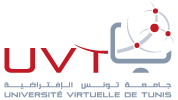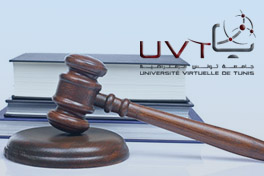The MEDiterranean countries: Towards Internationalisation at Home (MED2IaH) project is primarily designed to have an impact at system level and trigger reform processes at national level in Mediterranean Partner Countries (PC). Policy-makers will receive support for evidence-based policy development and better regulation to move towards the modernisation of framework conditions for Higher Education (HE) in PCs. HEI managers and other stakeholders in the sector will be able to feed their expertise into the reform process and articulate their needs already at the stage of policy development. By developing policies that adequately address real problems at institutional level in each PC, MED2IaH will ultimately benefit the whole HE sector. The inclusion of all stakeholders (management, academic and administrative staff at universities, students) in project activities and consortia ensures that the whole HE sector in PCs and will take a step forward towards national reforms, which is a success factor.
The overarching objectives of this project are threefold:
- To outline the internationalisation landscapes of PC HEIs and to identify levels of integration of international and intercultural dimensions into the formal and informal curricula of PC HEIs
- To improve the capabilities of PC HEIs for internationalisation through staff training and by translating general awareness of the internationalisation at home (IaH) concept into streamlined institutional strategies and Action Plans.
- To build students’ intercultural knowledge and sensitivity to cultural diversity by transforming the International Relations Offices (IROs) of PC HEIs into vibrant multicultural focal points.
The deliverables of MED2IaH project are interrelated in the sense that they are all linked by the thread of internationalization at home as a central theme. Each deliverable is needed in the accomplishment of the next one(s). Below is a detailed description of the advancement of these deliverables and how they were elaborated within the Virtual University of Tunis.
In the first year of the project the UVT responded to a questionnaire that served as the data gathering instrument for the report on internationalization in the partner HEIs. In the last year of the project of the project the UVT responded to the second part of the questionnaire that will be used as the data gathering instrument for the report on internationalization in the partner HEIs.
The SWOT analysis of the UVT helped in putting together the internationalization strategy and action plan (WP2) of the UVT. Furthermore, he reports of the three Tunisian partner universities helped the UVT as the national coordinator to elaborate the country profile report of Internationalization at Home. The UVT received the equipment of the language lab and international office. The UVT students and staff participated in the four webinars on capacity building held during February and March 2021. The coordinator of the Project at the UVT and the national coordinator in Tunisia delivered 3 presentations in three webinars.
Within WP2, the UVT organized 2 online roundtables in February and March 2021 to inform the UVT students and staff about the 4 webinars on capacity building. The 2 roundtables were good opportunities for the students and staff to know about the MED2IaH project and the upcoming tasks and activities such as the DST training and contest and the student boot camp in Piran, Slovenia in June 2022.
During the 2 roundtables there were fruitful discussions to brainstorm ideas for the UVT internationalization strategy and action plan. It is a bottom up process because the students and staff were engaged in the elaboration of this strategy. The ideas and preferences suggested during the roundtables were put together to elaborate the internationalization strategy and action plan of the UVT.
The management of the UVT approved the strategy and action plan. They are now published on the university website and projects’ platform.
The Virtual University of Tunis participated in three of the 4 organized study visits. Below is a description of the participation of the UVT staff in these study visits.
The training sessions on IRO development, ICM management, and EU projects and the workshop on ERA projects management were successfully conducted during the month of November 2022. It was a whole month of intensive and close work with the academic and administrative staff and some undergraduate and doctoral students of both the Partner 10 (Virtual University of Tunis) and Partner 11 (Ezzitouna University).
The UVT organized a training of digital storytelling during March 2022. The training was hybrid. The UVT students followed an online course on DST via the UVT platform. The students participated in three face to face meetings for hands on activities on DST as a didactic tool, and the intercultural and technical aspects of DST.
By the end of March 2022 the UVT students who followed the training were able to submit their videos in which they reflected on their intercultural experiences.
Two of the UVT students participated in the student boot camp that was held at EMUNI, Piran, Slovenia.
The UVT coordinator of MED2IaH participated as the coordinator and a lecturer at the boot camp.
The UVT students and teacher participated in the elaboration of the code of conduct of the university teahouse. UVT code of conduct was elaborated and approved by management. The UVT students and teacher participated in the elaboration of the guide for international students.
The guide for international students was elaborated and approved by the management.
The UVT students and teacher participated in brainstorming intercultural activities and set preliminary calendar for their implementation.
The boot camp students were the leaders of the intercultural activities at the UVT. They were invited several times to give their testimonies on their intercultural experience in the MED2IaH project.
In the 3 podcasts different people were interviewed by the boot camp student Khairedine Bourguiba used the equipment received from the MED2IaH project within the UVT studio.
He interviewed four different participants namely:
- a student from Indonesia (on mobility in Tunisia) who talked about the cultural differences he encountered in Tunisia and the tools and methods he used to adapt himself to the Tunisian social and educational context.
- a Tunisian student who talked about her mobility experience in different countries.
- two EMUNI staff members who talked about the opportunities of mobility and quality education that Mediterranean students can have with EMUNI.
The intercultural activities led by the UVT are mainly used as a dissemination and sustainability tool. Actually, the videos produced are disseminated on the UVT website and platform and are widely watched not only by the UVT students but also by a wide range of the Tunisian population.
By the end of the project two national events were celebrated at the premises of Ezzitouna University and in collaboration with its team. These events were the Tunisian national conference on internationalization at home and the multicultural festival. Several national and international guests were invited to participate as well local and international students to present their shows and cultural products within their stands.
Written by Dorsaf Ben Malek (National Coordinator of MED2IaH and UVT teacher)

